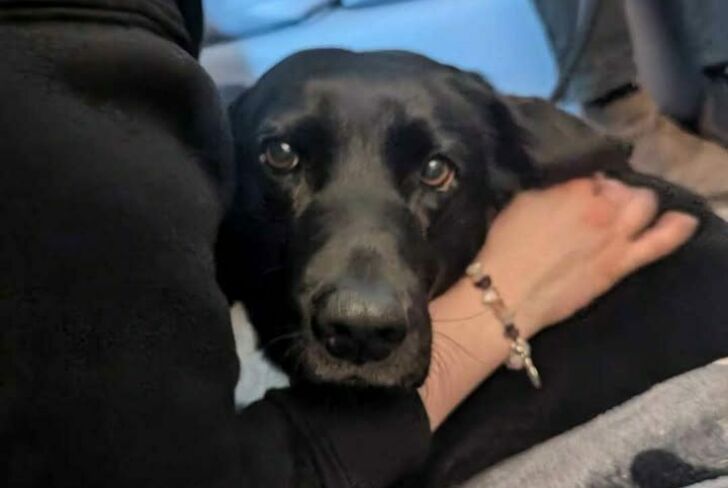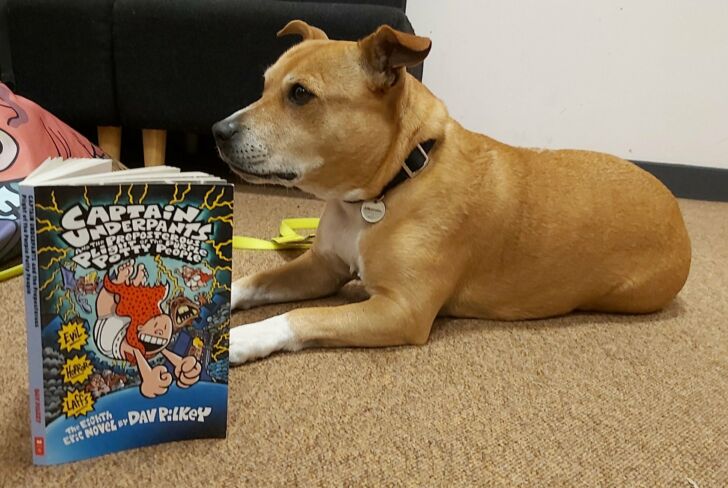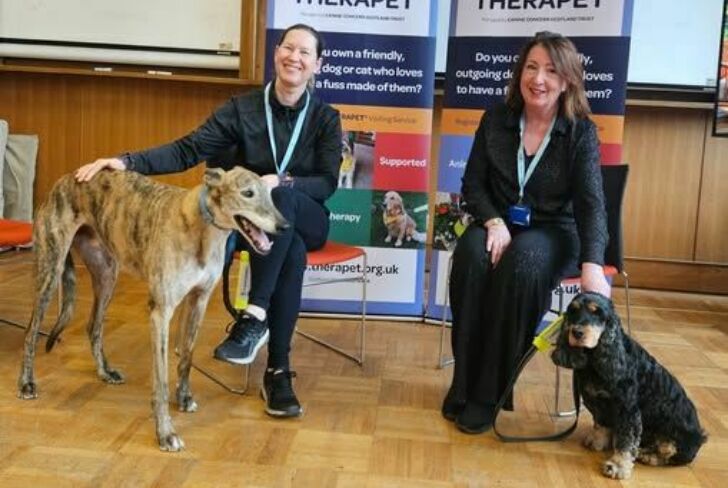Dog Phobia
Therapet has been carrying out Phobic work with children and adults for well over three decades. The work is carried out through NHS GP referrals from child Psychology units (CAMHS) the length and breadth of Scotland. This work is undertaken by specially assessed therapets who take part in our visiting service.
The criteria for this is the therapets must have been visiting for at least one year, then be reassessed for their suitability and the volunteer will have another disclosure check carried out as well.
In the main the sessions are controlled by the Psychologists who have asked for our help with their clients. This is because they have a greater depth of knowledge and understanding of their clients needs at this time. The therapet volunteer will have input into what will happen during the sessions using their skill and previous knowledge gained from a practical sense rather than clinical one. This then draws off skills from both parties which enables everyone to provide a high level of service to person who needs this service. The number of the sessions required is usually around four to six, but can vary depending on the issues involved. The length of each session varies but the norm is around one hour duration. This again is normally controlled by the Psychologists.
Some end results we would try to aim for could be:
- The child could sit in a room with the dog in close proximity, on a lead and under control of the handler, without showing any serious signs of fear or anxiety.
- The child would be able to walk happily without showing any fear in the company of a small group of two or three adults one of whom has the dog under close control on a lead. Leading up to the child taking the lead while walking the dog with the small group of adults, including the dog's handler who retain's close supervision of the dog's movements.
- The child would be able to touch the dog on the rump, back or head while the handler retains close control of any movements.
Sometimes all that is achievable is that the child will show less signs of anxiety in the presence of the dog or any dog that he or she may come into contact with. Whether this be in a room, in the park or just walking along the street. At present we are drawing up guidelines for our therapet volunteers who wish to take part in this part of Canine Concern Scotland Trust work with our volunteers and their therapets. In doing this it will enable Canine Concern Scotland Trust to offer this service to more areas via the NHS GP referral system and at the same time maintain the present high standard.
“Canine Concern Scotland has been invaluable in helping young people with dog phobias to get to know more about dogs and how they should behave around them. James (CCST Volunteer) is a calming and informative presence and controls his dog expertly while the child is allowed to gradually increase their contact with the dog. This progress would not be possible for the children without the help of a calm dog and owner to help them overcome their fear quickly and safely.”
Dr Mhairi Gervais
Clinical Psychologist
“Therapet provided a dog and a dog handler to help me in my clinical work with a dog-phobic. The therapy required a dog that displayed predictable behaviour and was responsive to commands. I used Therapet for a number of sessions in a clinical setting using carefully orchestrated scenarios. The dog, and trainer, were required to perform a set number of routines for sessions that lasted around one hour. The patient benefited greatly from the predictable nature of the exceptionally well-trained dog and increased confidence during sessions. The dog trainer, and the overall service provided by Therapet, was excellent.”






